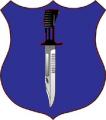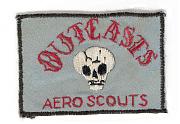The Brits arrived in 2006 and 4 years on its as the man said..."slow learners"
Its a case of too little too late. And it can't all be blamed on the politicians. I suggest that the centuries of inbreeding in the officer class are coming home to roost.In N Ireland some units stayed for 2 years on 'residential' tours while others rotated in and out on 6 month 'emergency' tours. HQ, support and specialist staff generally did 2 year tours. In Afghanistan the number of 12 month posts in critical areas (G2, Info Ops, CIMIC) has increased and the UK mil has got much better at conducting a campaign as opposed to a series of ad hoc brigade initiatives
War footing? Look you can't be taking this whole thing seriously if you do a 6 month tour followed 18 months of guarding palaces and other unproductive pursuits. Now unless the Brits intend to do a "Basra" on the US again in the case of Afghanistan then they better settle down and get stuck in to where ever the US deploys them in Afghanistan.The UK mil has also recognised that there is still an element of 'being on operations' as opposed to 'being at war' mindset, exemplified at it most stark raving mad by the army being on a 'war footing' for everything except career management, with the inevitable consequences that this entails. This is work in progress and the Chief of the General Staff (General Richards) is actively driving this.
It is understood that the Brits can't bring their troops home from Europe as they have no place to house them. Soinstead of letting them waste their time hanging out in Germany let them do time in Helman.












 As for defeat at the hands of the JAM... I disagree in part. The hard military fact is that the UK fought the JAM to a draw over the period 2006-2007. We did not have the strength to dominate Basra, the JAM did not have the strength to defeat us, it was stalemate. We had decapitated their C2 and severely attrited their main cadres but we lost the battle of perceptions internally (Basra) and externally (middle east and ROW). What followed, the accommodation, extraction and then Op Charge of the Knights is a story which will be told later on this year, at which point we can discuss anew. The story of the UK mescapade in Basra, especially 2006-09 reminds me in part of the story of the Tet Offensive.
As for defeat at the hands of the JAM... I disagree in part. The hard military fact is that the UK fought the JAM to a draw over the period 2006-2007. We did not have the strength to dominate Basra, the JAM did not have the strength to defeat us, it was stalemate. We had decapitated their C2 and severely attrited their main cadres but we lost the battle of perceptions internally (Basra) and externally (middle east and ROW). What followed, the accommodation, extraction and then Op Charge of the Knights is a story which will be told later on this year, at which point we can discuss anew. The story of the UK mescapade in Basra, especially 2006-09 reminds me in part of the story of the Tet Offensive.

Bookmarks